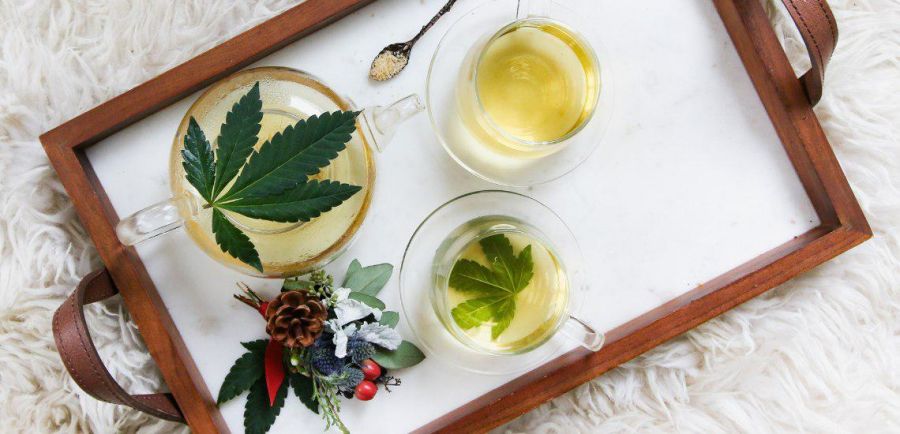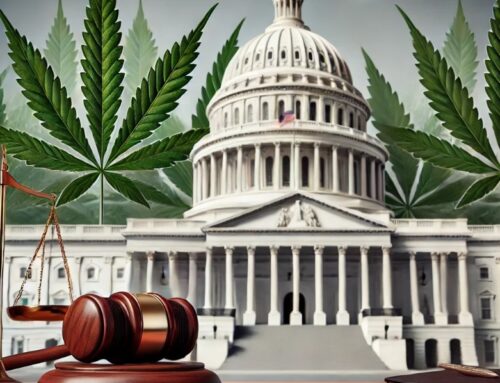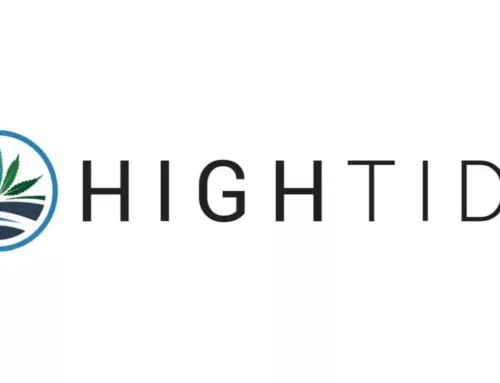The Rise of Cannabis Beverages: Trends and Market Insights for 2025
LOS ANGELES –
Cannabis beverages are gaining traction in the health and wellness industry as a new way to deliver cannabinoid benefits. As 2025 approaches, this market is projected to grow significantly, evolving consumer preferences and advancements in formulation technologies, coupled with global cannabis legalization.
This analysis delves into the key factors fueling the rise of cannabis beverages, explores the shifting consumer preferences shaping demand, and highlights the major trends shaping this promising market.
What is Cannabis Beverage in a Nutshell
Actually, there are two types of drinks, derived from Cannabis sativa L. plants:
- Hemp beverages contain cannabinoids derived from hemp with no more than 0.3% delta-9 THC by dry weight. These drinks promote relaxation and well-being without the strong psychoactive effects associated with marijuana beverages, though excessive consumption may lead to a high. Their federal legality due to Farm Bill 2018 enables interstate distribution and availability through e-commerce platforms, significantly broadening their reach and accessibility.
- Marijuana beverages, made from high-THC cannabis plants, deliver a potent psychoactive high and serve as a faster, more convenient alternative to traditional cannabis consumption methods. They are regulated on a state-by-state basis, and sold exclusively in dispensaries.
Many of these drinks incorporate full-spectrum cannabinoids and rich terpene profiles, leveraging the “entourage effect” for enhanced therapeutic and recreational outcomes. Available in formats such as sodas, teas, coffees, juices, and smoothies, they appeal to health-conscious consumers seeking organic, non-alcoholic options or unique recreational experiences.
Drivers of Consumer Interest
Cannabis-infused beverages have captivated the modern consumer by merging well-being, recreation, and innovation into a single, versatile product. The following factors underscore the growing popularity of these drinks:
- Pursuit of Healthier Lifestyles
Low-calorie, low-sugar cannabis beverages stand out as appealing alternatives to traditional sodas, sugary cocktails, and calorie-dense alcoholic drinks. These functional and flavorful options cater to those embracing holistic approaches while satisfying their desire for enjoyable products. - Desire for Stress Relief
As mental health concerns grow, many seek natural remedies for stress and anxiety. A 2024 survey by the American Psychological Association revealed that 77% of Americans view the nation’s future as a main stressor in their lives. Hemp beverages address this need with calming properties, providing effective support for emotional stability in today’s fast-paced world. - Declining Alcohol Consumption
Younger generations are driving a shift away from alcohol, favoring alternatives that offer relaxation and social enjoyment without intoxication or hangovers. THC-infused beverages provide a similar sense of euphoria and relaxation but without alcohol’s health risks, making them an appealing choice for mindful consumers. - Broadening Recreational Experiences
Combining precise dosing with convenience, cannabis beverages strike a balance between traditional edibles and smoking. They cater to consumers looking for enjoyable, socially acceptable alternatives for leisure and relaxation. - Advances in Beverage Technology
Innovations like water-soluble cannabinoids and nanoemulsion technology enhance bioavailability of cannabis drinks, ensuring a faster onset of effects—often within 15–30 minutes. These technologies improve cannabinoid absorption, offering a more predictable and controlled experience. - Sustainability and Ethical Choices
Even budget-conscious consumers are willing to pay up to 9.7% more for sustainable products, underscoring the growing role of ethics and environmental responsibility in building customer loyalty. Cannabis beverage brands can boost demand by adopting eco-friendly practices like biodegradable packaging, carbon footprint reduction, and organic sourcing. Partnering with local farmers, supporting fair trade, and ensuring transparent supply chains further enhance trust and solidify their position.
Projections for 2025 and Beyond
The global cannabis beverage market, valued at approximately $3 billion in 2024, is projected to soar to $117 billion by 2032, with a compound annual growth rate (CAGR) of 57.5%. In the U.S., the market is expected to expand, reaching an estimated $81.44 billion by 2032. This impressive growth will be fueled by several key factors:
- Increased Consumer Adoption
As awareness of the benefits of CBD and THC grows, more consumers are incorporating cannabis-infused beverages into their routines. Millennials and Gen Z, known for their openness to innovative wellness and recreational products, are expected to lead this demand, driving adoption rates for these drinks. - Global Market Expansion and Legalization
The ongoing legalization of cannabis in emerging markets, particularly in Asia and South America, will unlock new opportunities. As regulations evolve, international brands are likely to enter these regions, spurring competition, innovation, and broader accessibility. In the U.S., steady state-level legalization of cannabis will further accelerate market growth. - Integration into Food and Beverage Portfolios
Major players in the food and beverage industry are increasingly investing in cannabis products, whether through acquisitions or by launching their own lines of hemp and marijuana drinks. This trend brings significant resources, expanded distribution networks, and greater visibility to the category, accelerating its mainstream acceptance. - Focus on Eco-friendly Practices
Hemp’s properties, including its ability to sequester carbon dioxide and thrive in diverse climates with minimal resources, align with growing consumer and policymaker interest in sustainability. Brands that highlight biodegradable packaging, ethical sourcing, and environmentally conscious practices will gain a competitive edge in the market.
Trends for 2025 to Watch
The cannabis beverage market is undergoing a dynamic transformation, driven by innovation and shifting consumer demands. As competition increases, brands are finding creative ways to stand out and address changing preferences. In 2025, key trends are set to define the market’s future, unlocking new opportunities for growth, innovation, and deeper consumer engagement:
- Infusion with Additional Functional Ingredients
Cannabis drinks are evolving into multi-functional products by adding adaptogens, vitamins, probiotics, and superfoods. This trend comes as consumers look for beverages that offer benefits for their overall well-being, such as better gut health, stronger immunity, or stress relief. - Cannabinoid Diversification
While THC and CBD dominate the current market, emerging cannabinoids like cannabigerol (CBG) and cannabinol (CBN) are drawing attention for benefits such as CBG’s anti-inflammatory and mood-enhancing effects and CBN’s improving sleep. Ongoing research will likely integrate these cannabinoids into beverages, expanding options for therapeutic and recreational use. - Premiumization
Discerning consumers who are ready to pay more for high-quality products will be attracted to superior ingredients, organic certifications, and premium packaging. Limited-edition flavors, artisanal production methods, and collaborations with luxury brands position cannabis beverages as refined lifestyle offerings. - Seasonal Offerings
Seasonal products, such as pumpkin spice CBD lattes in fall, THC-infused sparkling cider for the holidays, and tropical summer blends, are increasingly vital for attracting consumers and keeping offerings fresh, encouraging repeat purchases. - Localized Product Lines
Creating localized product ranges can appeal to responsible consumers while leveraging region-specific flavors and locally sourced hemp. This approach reduces carbon footprints and attracts eco-conscious buyers while supporting local communities. Also, by incorporating regional specialties into their flavors, brands can differentiate themselves in a saturated and competitive market.
Conclusion
Cannabis beverages are reshaping the way we think about wellness drinks, combining health benefits, innovation, and a focus on sustainability. With legalization expanding and more people exploring the potential of cannabinoid-infused products, the market is on the brink of explosive growth. Brands that stay ahead by adopting new technologies, prioritizing ethical practices, and creating unique, tailored products will set new standards for what consumers expect. By addressing challenges and seizing emerging trends, brands can position themselves for success in this fast-growing industry.
Author Hunter Smith
Copyright Highly Capitalized Network and New Beverage Partners © 2025. All rights reserved.
Thank you to New Beverage Partners and Hunter Smith for collaborating on this article.
New Beverage Partners, led by Hunter Smith, is a key incubator for hemp beverage and gummies brands, offering expert guidance in marketing, manufacturing, distribution, and compliance. Backed by an extensive network of industry specialists, they help brands successfully enter and thrive in the market.
Hunter Smith brings 15 years of experience as a proven leader in beverage production. He has received national awards for quality and marketing, sold over 15 million cans across 13 states, led teams of over 100 employees, managed P&L, and contributed to driving a company toward a $10 million annual revenue trajectory pre-COVID. As Co-Chair of Government Affairs for the Craft Brewers’ Guild, he has also helped shape industry legislation.
Hunter is also the founder of Grow Cannabis, the first brand in hemp beverages to position itself directly against alcohol, offering consumers a compelling alternative.
To learn more about elevating and growing your hemp beverage or gummies brand, contact Hunter Smith and the New Beverage Partners team. Visit www.newbeveragepartners.com or email [email protected].
Acknowledgement
In this article, the term marijuana beverages is used solely to distinguish legal hemp-based drinks from regulated cannabis beverages with over 0.3% THC, while cannabis serves as an umbrella term for all beverages derived from Cannabis sativa. We acknowledge the negative historical connotations of the word marijuana but have chosen it for clarity in telling this story.






























